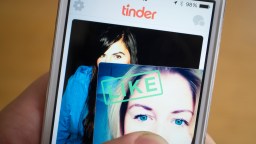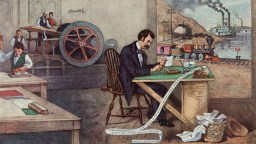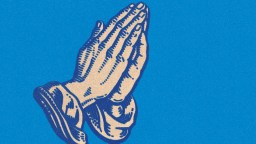In A Field Guide to Lies, neuroscientist Daniel Levitin explains how to wade through an endless sea of data and statistics to hone our critical thinking skills.
Search Results
You searched for: Internet
In 1835 Alexis De Tocqueville toured the United States and recorded many elements of living in a democratic society. We can use his observations to better understand the society around us.
Economic and social theorist Jeremy Rifkin says that sharing online and on-grid spells the death of capitalism and the birth of a worldwide neural net.
One in five employees are distracted at work by social media, a Pew Research Center poll finds.
Scientists find a surprising relationship between yawning and brain size.
Death, politics and war – but also Dirty Grandpas, supermoons and all-day breakfasts
Imagine a world where governments compete for your citizenships. Bitcoin and Blockchain expert Toni Lane Casserly explains how this technology could anoint people over institutions.
How Blockchain Can Empower Migrants and Refugees
▸
12 min
—
with
New research at MIT might be a game-changer for Alzheimer’s. But you don’t have to wait to strengthen your brain’s memory system.
Why do people believe fake news? It’s not because it gets shared all over Facebook; it’s because they don’t trust mainstream news. And Snopes agrees with them.
When dating online, people disclose personal details more readily than in real life. This leads to a false sense of intimacy that can result in serious misunderstandings over sexual desire.
▸
6 min
—
with
ScienceDebate.org sent 20 fine-tuned questions to the presidential candidates. 3 out of 4 of them responded. Here’s where they stand on key science issues.
While often compared to the Roman Empire, the United States is not likely to collapse in the same way.
Rob Bell examines the two responses to our rapidly changing world, covering politics, the internet, tribalism and race relations.
▸
7 min
—
with
The most impactful technology inventions in history are ranked.
From addiction recovery and disaster relief to thetans for athletes, Scientology uses non-profit charitable causes to promote its agenda.
Can you legislate for good human behavior, or does proposing laws to imprison those who use racial slurs distract from actual progress?
Not as cheerful as your standard cartography – but you might learn a thing or two
North Korea announces a new on-demand video service for its citizens.
Turns out simplicity is really, really complicated. Having worked with Steve Jobs for years as an advertising creative director on Apple products, Ken Segall has taken a blood oath to uphold the principles of simplicity.
▸
9 min
—
with
Right before he goes to sleep every night, staunch atheist Penn Jillette does something surprising. He says a little prayer – sort of.
▸
7 min
—
with
By definition, innovation brings disruption. 3D food printing is converging with the demography and culture of convenience. From fast moving Millennials, to Boomers who seek hassle-free living, 3D food printing may change not just how we eat, but how we buy what we eat. What might the convergence of this new technology and the disruptive demographics of convenience mean for the future of the grocery store?
The UK sees Sealand as nothing more than a platform in its waters. The Bates Family disagrees.
Mark Zuckerberg recently reiterated that brain-to-brain interfacing is our species future. Today, scientists can have participants move things on a screen with their mind and signal to one another across vast distances. It may someday have therapeutic uses for ADHD, give us sense experiences not akin to our species, and even allow advertisers to invade our minds.
Bees help pollenate much of our crops. Without them, the food supply is doomed.
A live-blog event happened a week ago, but you can catch the entire thing anew here, right now! “We have never observed infinity in nature. Whenever you have infinities in […]
Hulk Hogan’s Gawker lawsuit is a classic freedom of the press case dressed up as a soap opera.
The Consumer Financial Protection Bureau announced new proposed rules to protect individuals from predatory lending services. And Google’s taking part as well.
Medical devices like pacemakers and insulin pumps will save many lives, but they also represent an opportunity to computer hackers who would use the Internet to cause havoc.
▸
6 min
—
with
Do you know how your iPhone works? Because cybercriminals do. Futurist and global security advisor Marc Goodman explains how our void in tech knowledge lets hackers have a field day, and how to make yourself less vulnerable.
▸
4 min
—
with
Mark Zuckerberg insists the future of virtual reality will put “people first.” The development trajectory of the technology tells another story.




























